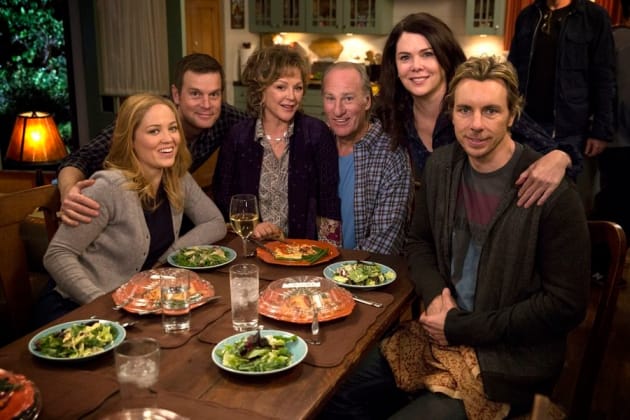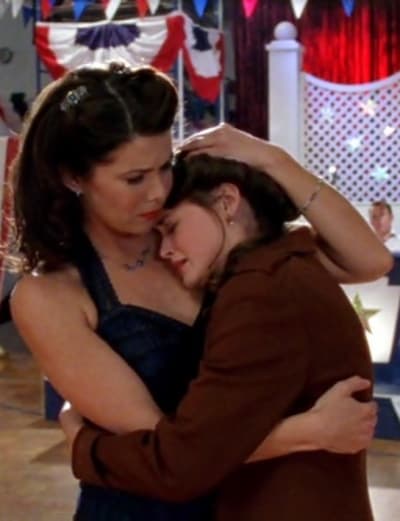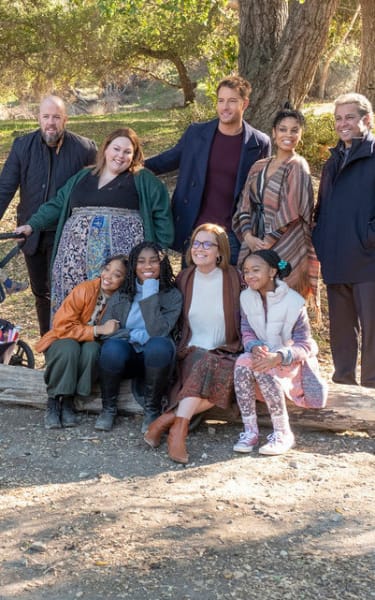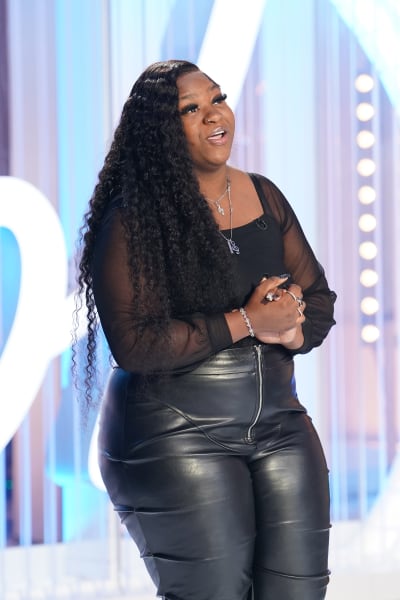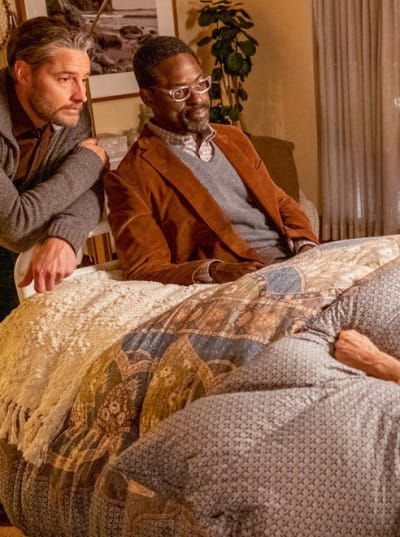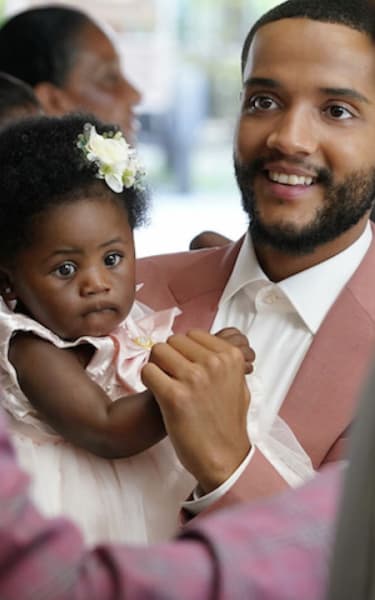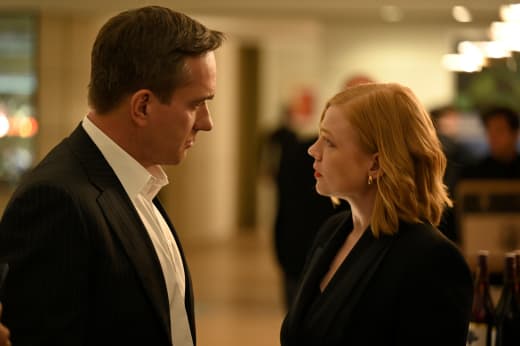One thing is clear from a quick scroll through a cable TV guide or paying attention to the featured show commercials—the scarcity of family dramas.
Once that point is brought up, it’s hard not to wonder what that says about our culture and society as a whole.
There was a time when families sat down and watched TV together.
Some of my fondest memories include watching Friday Night Lights and Gilmore Girls with my parents.
However, nowadays, the idea is becoming a foreign concept if the kids are under 18 or at least not teenagers.
There are many motives behind the switch to crime-focused content, whether true or procedural, hospital dramas, comedies, and series full of mature content.
And we are here to shed some light on the reasons for the change!
Difficulty with broad-base appeal
One of the most significant contributors is the simple fact that it is hard to make a show that will resonate with ages that range from childhood to adulthood.
Appealing to all ages and genders requires craft and many topics to be covered.
Given how Gen Z thinks versus, for example, baby boomers, contradictions would most likely be prevalent, and references would be lost, leaving some confused.
Shows are now very audience-specific and niche. This is primarily because with hyper-targeting comes a highly loyal fan base.
Another aspect of that is it makes advertising more accessible and more influential.
Suppose you watch shows like Euphoria, Outer Banks, or Emily in Paris, all targeted at young adults.
In that case, it’s easy for businesses revolving around social media, dating apps, or products to connect to critical consumers.
But this doesn’t mean everything has become R-rated. Kid’s TV is still thriving, but it is also considered narrowcasting for the apparent reason it’s for children.
The niche-specific concept then leads to the next point.
Times Have Changed
It’s almost a chicken or egg situation. TV shows have become more audience-specific simply because families aren’t sitting down to watch shows.
But it also begs the question, have families stopped gathering in the living room because of the lack of broad-range family shows?
In the mid-70s, “family viewing hour” was popular. Divorce and single parenthood have increased significantly.
According to the U.S. Census Bureau, the percentage of children younger than 18 living with two parents decreased from around 85% to 67%.
Coincidentally, the family viewing hour’s inception arose from protests against the rise of sex and violence on TV in the 70s.
The creatives behind the shows have moved towards more intense and stark, which tends to carry mature content. Thank Breaking Bad and even comedies like Glee or Modern Family.
All were massive hits, and you can’t deny that dark, raw creativity and clever humor were the driving forces behind that.
Introduction of Technology
The digital age also has a hand in the cookie.
Introducing iPods, iPads, smartphones, social media, and video games has created many highly attention-grabbing alternatives.
Crime Shows are Easy to Watch
Procedurals, or any crime-related show in general, whether it’s fiction or real, has gained massive popularity for many reasons.
One of the reasons is they are easy to watch. You don’t need to invest much time in the characters or plot. It may make the series more interesting, but it’s unnecessary.
There is no need to see previous episodes to know what is going on, and if you are with other people, you can quickly introduce them to the show or throw it on in the background for the same reason.
You also don’t have to think critically while watching these shows. After a long day at work, that is what many people want.
They have a formula down pat for viewer appeal, with one part being a structured character ensemble.
If you have seen Criminal Minds, it’s easy to think of at least one person you love, whether it’s Spencer, Penelope, Rossi, or Morgan.
Another appealing aspect of these shows is that we love mystery and seeing a bad guy or girl get put away.
Reality TV is the New Family-Friendly Content
When Big Brother and Survivor were introduced, it was apparent their likeability would only heighten.
You can tell that since 2000, reality TV shows have become the new primetime family viewing.
Think about it: The Voice, American Idol, Masked Singer, Chopped, Top Chef, The Amazing Race, Storage War, Duck Dynasty, and American Ninja Warrior.
The list could go on, but it doesn’t even include game shows like Deal or No Deal and Family Feud.
This is by no mistake. The majority are made to be family-friendly.
They are also easier to make and more cost-efficient. Reality TV shows have lower talent casts and fewer writers and crew members.
Some are better than others. We know it’s a polarizing subject, but with the diversity of content in the genre, the logical thought for networks is that everyone can find at least one they enjoy.
What Does That Say About Our Culture?
Well, there are two ways to look at this.
Sadly, families aren’t taking the time to bond over TV shows anymore. It is also despairing that networks aren’t making family-friendly series anymore.
From that angle, it is easy to conclude that the nuclear family isn’t a thing anymore, which isn’t exactly anything new.
We are consumed by technology and social media, and that is not always a good thing.
We tend to compare our lives to others when all we see posted is the good, creating an illusion and lower self-esteem.
With reality shows becoming the family primetime go-to, there is undoubtedly a lack of education and connection.
It is hard to see yourself as the next winner of a singing competition show or surviving in the wilderness.
It also has the potential to idolize people and situations made for entertainment purposes, not real life, something younger kids don’t understand.
Fortunately, shows like Friends, Parenthood, Succession, Dynasty, Friday Night Lights, and Queen Sugar, amongst many more, are streamable, but we know it’s not the same.
On the contrary, having audience-focused shows has created unique and irreplaceable series that allow you to form bonds with friends and family around your age.
While the fact that divorce is genuinely heartbreaking, at least people don’t feel stuck in unhappy marriages anymore.
Women no longer need to stay married to their husbands for financial reasons, fear of embarrassment, or lack of resources.
The concept allows people to celebrate what they enjoy and become more individualistic.
There’s a great feeling behind relating to something on TV that you thought was impossible to see in that way. Resources are shared, and controversial topics are being discussed more than ever.
Despite the reasons why, it would still be nice to have a couple of solid family-oriented drama series for those who want them.
It is an audience that would be an extremely loyal fan base if streaming networks or cable TV dedicated time to it.
For now, streaming is winning the prize for these offerings, but we’d love to see them return to broadcast and cable, too.
What are your thoughts on the matter?
Comment below to share your opinions or solutions!
Eve Pierpont is a staff writer for TV Fanatic. You can follow her on X.
